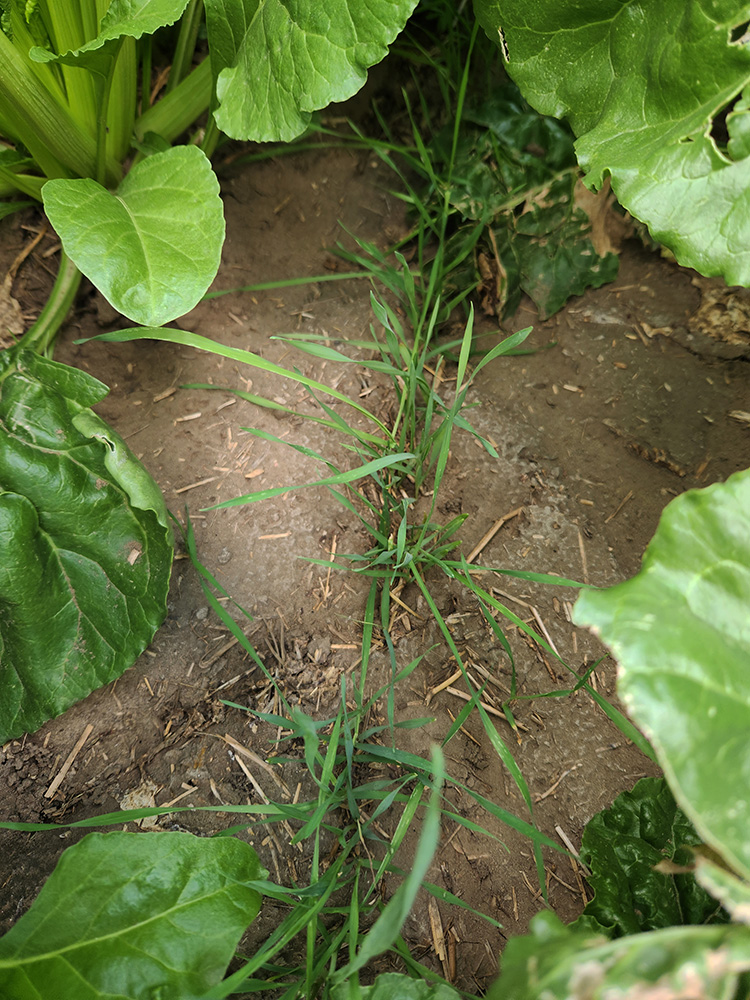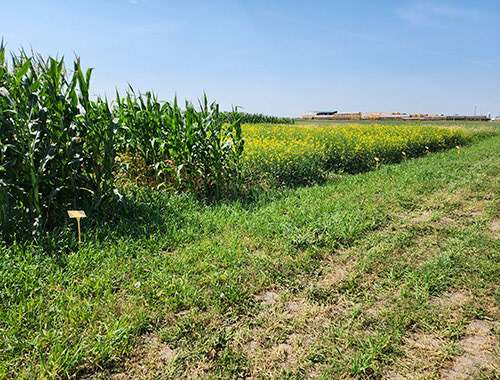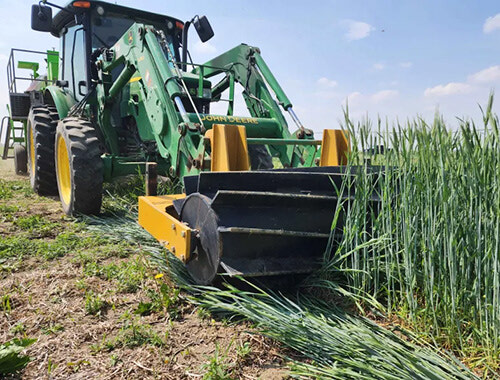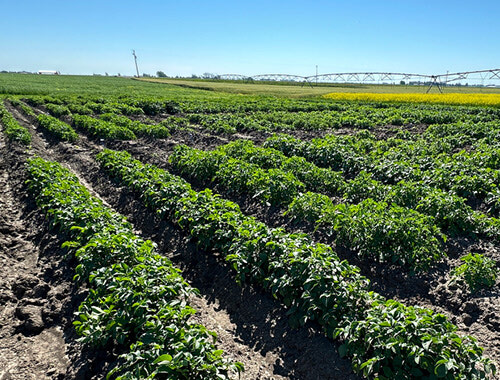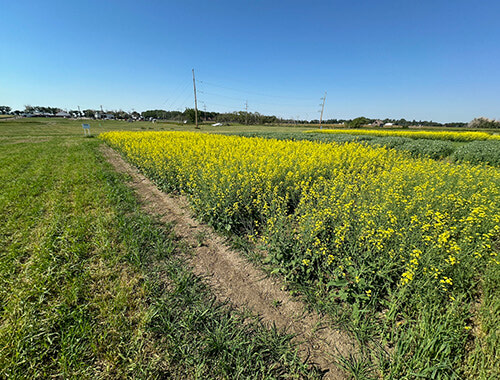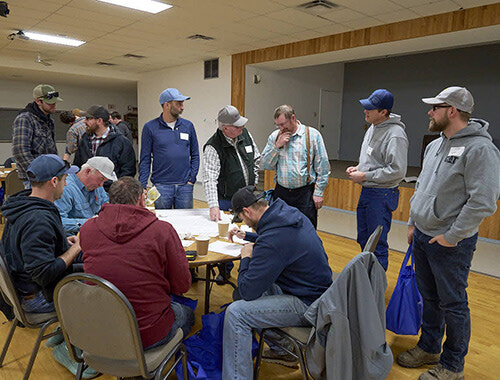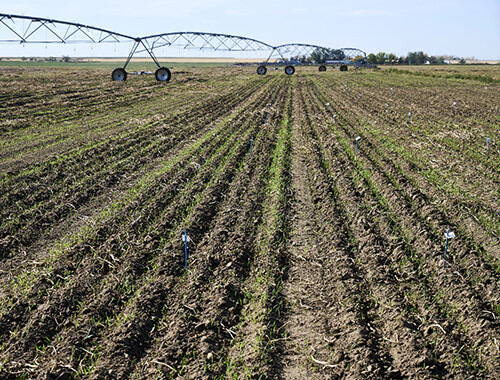By Craig Lester, Rural Roots Canada
"It's in its prime right now!"
That's how Farming Smarter Research Manager Mike Gretzinger explains the momentum the Saving Soils project has right now.
After years of trial and error, the project, which started in 2023, is now delivering soil conservation solutions to farmers to help them reduce soil erosion, improve soil function, and help farmers adopt sustainable practices without sacrificing productivity.
The program, sponsored by the RBC Tech for Nature and Weston Family Foundation, focuses on soil conservation in four key project areas:
- Reduced Tillage – Studying how cutting back tillage operations affects soil conservation and nutrient availability. Trials include strip tillage in crops such as corn, canola, and dry beans.
- Cover Cropping – Testing covers such as fall rye, winter wheat, and camelina to protect soil between cash crops. These are paired with spring crops like barley silage to measure how much erosion control and nutrient cycling they provide.
- Living Mulches & Integration – Evaluating the role of living mulches in Prairie crop systems, balancing weed suppression and soil protection while keeping yields steady.
- Innovative Crop Systems – Investigating practices like roller crimping fall rye to create a mulch layer, as well as comparing how different seeding dates and crop rotations affect long-term soil health.
|
|
|
Fall cover crops begin to grow beneath a canopy of sugar beets. These cover crops will provide structure to the would-be loose soil left behind from sugar beet harvest. |
From Trial and Error to Practical Solutions
When the program began, Farming Smarter tested a wide range of practices, some of which proved less practical than expected. Gretzinger says the early failures were valuable learning opportunities.
“After a few failures, we're like, okay, how do we rein in these concepts and make them applicable and realistic to farmers,” says Gretzinger.
For example, when the team tried roller crimping, it did not perform as hoped in southern Alberta conditions, and some alternative crops didn’t deliver consistent results. Over time, the team focused on approaches that could be realistically adopted on farms in the region.
“All these little things that we've been doing along the way have already come into fruition. I'm happy with that.”
He adds they are now focused on the more practical, reduced tillage type things.
“The cover cropping, how we could integrate things like a living mulch or strip tillage into our current systems, and what effect that's going to have on, say, the nutrient cycling and carbon sequestration.”
A Flagship for Extension
One of the program’s biggest strengths is its role in extension. By combining multiple research projects under the Saving Soils umbrella, Farming Smarter has created a clear platform for outreach and farmer engagement.
“We've made a flagship of this program for extension purposes. It's been really helpful to have all of the different trials within a single program. It gives us a good framework for focusing on the research ideas that we're doing.”
Producers can now see how different practices such as reduced tillage, cover cropping, or strip tilling fit together in practical crop systems, rather than viewing them in isolation.
Looking Ahead
Now that the program has hit full stride, Gretzinger says the goal is to continue building on its successes and extending the knowledge to producers.
By focusing on practical conservation approaches, Saving Soils is not only advancing soil research but also ensuring that farmers have tools that protect soils while remaining economically viable.
|
Check out the project playlist, following the project through our series of Plot Shots! |
Check out the project pages!
2022-2027
Annual crop systems can be optimized with the addition of cover crops. By terminating the cover crops at the right time, you can provide your cash crop with an extra source of organic matter, wind cover, with an edge in weed competition.
2022-2027
In response to growing interest of cover crops, we have begun a 4-year project investigating the viability, management, and benefits of their adoption. While it is known that cover crops have many benefits for erosion control and weed suppression, we want to explore the lengths of their benefits for your soil.
2022-2027
As part of the Saving Soils initiative, Farming Smarter explores nurse crop, cover crop, and relay crop practices in irrigated potato trials to reduce soil erosion and improve soil quality in potato production.
2023-2027
Farmers in southern Alberta have a vested interest to protect their soils from wind erosion overwinter and trap soil moisture to combat summer droughts. However, they require options that won't interrupt their cash crop rotations. Fall-seeded camelina stands to provide an answer to both of these concerns with overwinter protection while being a cash crop.

